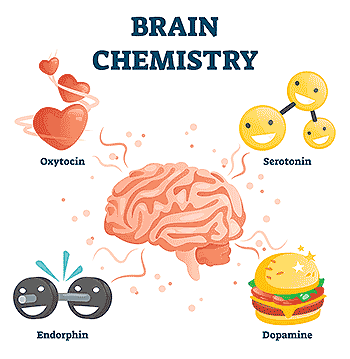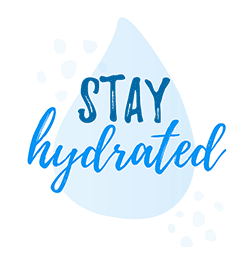How Your Diet Affects Your Ability to Beat Addiction
One of the most prominent and often-overlooked adverse consequences of addiction is vitamin and nutrient deficiencies. We all know that substance use takes a massive toll on your body. We also know that alcohol and drugs affect how your brain regulates your neurotransmitters, cardiovascular and pulmonary systems. But what does it all mean? Why is nutrition often overlooked?
Eating Healthy
Most people who are actively suffering from addiction do not focus on healthy habits. Mainly because addiction often consumes your entire thought process with acquiring and using the substance. Also, it would be almost ludicrous to follow or promote a healthy way of living because you know you are leading an unhealthy and risky path. When you exist in the chaos of active addiction, your decisions and reaction are compromised. It is mostly about the moment than the long-term consequences. You’re unlikely to go through the extra steps of purchasing nutritional items or even preparing a healthy meal.
The Healing Power of Good Nutrition
If people could understand the power of what you eat has on your health, they would seek better choices. A good diet can help your body fight and sometimes repair the damage done by drug or alcohol abuse. More and more healthcare professionals are incorporating nutrition into their treatment protocols.
Good nutrition is crucial in maintaining good physical and mental health. It also provides you with the energy to face the requirements of recovery. The type of food and amounts you eat directly affects how your body functions and the way you feel.
For over 26 years, people from all over the world have chosen Waismann Method as their opioid detox provider.
We know the challenges you face and the importance of creating a unique and personal experience for you right from the start.Call for Detox Options 1-800-423-2482
Opioids and Sugar-Cravings

Addiction is always a dangerous condition, but when we add obesity and the possibility of diabetes, it can be especially life-threatening.
In addition to bad habits, substance abuse also leads to dehydration, vitamin and nutrient depletion.
For example, alcohol abuse can cause a lack of:
- Riboflavin
- Vitamins B6
- Vitamin A
- Thiamine
- Pantothenic acid
Drug use deficiencies include:
- Zinc
- Vitamin D
- Vitamin C
- Iron
- Calcium
- Chromium
- Magnesium
- Potassium
Together, these deficiencies can have serious consequences on your health. Substance abuse, especially alcohol abuse, is linked to an increased risk of metabolic syndrome. Metabolic syndrome consists of obesity, hyperglycemia, high cholesterol, and hypertension. Substances like alcohol and marijuana lead to a higher intake of caloric foods, resulting in a much higher metabolic syndrome risk. Higher risk is also associated with the length of use and levels of dependence on a substance.
Symptoms such as depression, confusion, skin problems, hair loss, and anemia are also a result of substance abuse.
Brain Chemicals Affected by Opiate Use
The Four Principal Neurotransmitters
Acetylcholine – Acetylcholine directly affects memory and the ability to process information. When your brain does not produce the appropriate amount of acetylcholine, you feel off, a bit foggy, and possibly forgetful. You may also experience difficulties in learning, have trouble focusing, feel stressed, and suffer mood swings.
Dopamine – Dopamine is essential for enhancing mood and energy levels. If you don’t have enough dopamine, you might feel irritable, unmotivated, and maybe anxious. Some people are overwhelmed with fatigue, experience some memory loss, or even a sense of dread.
Endorphins – Endorphins are incredibly important to minimize discomfort or any feelings of pain. Endorphins are an amazing part of our survival mechanism. Some call it the “feel good” neurochemicals. Not enough endorphins can cause chronic pain, depression, and cravings for sweets and alcohol.
Serotonin – Serotonin helps control sleep and appetite. When serotonin levels are low, you don’t sleep well, and you don’t eat properly. When you don’t sleep well, it greatly affects your quality of life. As a result, you may experience depression, confusion and problems learning.
Gamma-aminobutyric acid (GABA) – GABA is the main chemical to keep you calm and relaxed. Without it, you might feel restless and extremely anxious. You may suffer from muscle cramps, muscle pain, cramps, headache, and fogginess.
When you use drugs that create similar effects to your brain’s natural chemicals, your body feels overloaded. To adjust, your brain reduces its natural production. This is why you feel withdrawal symptoms when you quit opiates – your brain chemicals are reduced to a hardly functional state. In fact, they become dangerously low. That is why IV fluids, electrolytes, and vitamins are crucial during treatment for opiate addiction.
Nutrition in Substance Abuse Recovery
Vitamins to Assist Opioid Detoxification
It is essential to the patients’ comfort and well-being to place some focus on nutrition during addiction recovery. Maintaining a healthy diet is good but sometimes not enough. The addition of electrolytes, vitamins, and minerals, can greatly strengthen the immune system.
During the withdrawal phase, vitamin C helps detoxify your body while minimizing drug cravings. It needs to be used with caution because it can also cause diarrhea. When vitamin C is used simultaneously with vitamin E, it may help improve cognitive functioning. 5-HTP helps the brain produce serotonin and melatonin, which provides better sleep and a clearer mind. It might also help alleviate migraines, depression, and other issues – B-complex helps reduce stress and fatigue, two common side effects of opioid withdrawals.
Nutrition Impact on Cravings
During recovery, healthy eating habits are essential to prevent anxiety, irritability, and low energy levels, directly triggering cravings. Dehydration, low blood sugar, high levels of caffeine, and an unstable diet can lead to low energy, anxiety, and irritability- the perfect storm that leads to cravings. Eating well-balanced meals at regular eating times helps decrease these negative events, decreasing relapse risks. Generally, a diet low in fat and sugar is recommended for those starting the process of recovery.
Often in early recovery, patients struggle with distinguishing hunger from cravings for drugs or alcohol. Likewise, many people replace drugs and alcohol with sweet foods, often seeking pleasurable sensations, which trigger an increase in dopamine. That is why it is important to educate patients on frequent balanced and nutritional meals.
Healing Addiction and Nutrition Habits
Where to Start
If you are reading this article, you have already begun researching. Educating yourself is the best way to start a new path to health. Revising you’re eating habits is your second step. Although the process can be overwhelming, it just might be fun. You might learn new things about your body, your taste buds, and your ability to control your health. But more importantly, don’t be afraid to start; Any small change in the right direction is a positive result.
Daily nutrients from the right food group are a simple, easy step to help build up those nutrients you’ve been missing. Challenge yourself to include a fruit or vegetable in every meal. Try different ones because you might be surprised to see a positive reaction in your taste buds—also, hydrate, hydrate, and hydrate. Your body needs a regular intake of water to function smoothly.
Talk to your family doctor. Let them know you are seeking a healthier path and would like some nutritional guidance. Maybe even a referral to a nutritionist. A nutritionist can help you identify meals that satisfy your taste, fit your lifestyle, and provide adequate nourishment for your body.
Learning about your body’s function, needs and expectations can be a fun discovery that will lead you into a productive, happier and healthier path.
Sources
The relationship between opioid and sugar intake: Review of evidence and clinical applications
Acetylcholine
Endorphins: Effects and how to increase levels
What is Serotonin?
Reviewed by Clare Waismann, Registered Addiction Specialist (RAS), Substance Use Disorder Certified Counselor (SUDCC), founder of Waismann Method® Advanced Treatment for Opiate Dependence and Domus Retreat®. Clare Waismann is an authority and expert on opioid dependence, opioid use disorder, substance dependence, detoxification treatments, detox recovery, and other topics covered on RapidDetox.com.








